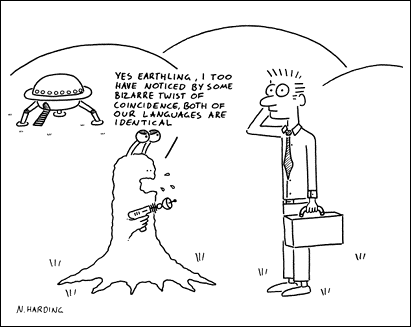about coincidences
Ami Ben Best

Spectrum reflects on coincidence or in Hebrew: the coincidence - those events that meet unexpectedly, without any prior planning and against all odds at a common point in time. This coincidence, he says, shakes and stirs our lives. When it takes place, it often solves problems, rescues us from stagnation points and always adds flavor to our routine life.
What a shame that the hand of fate does not call us a little more of this appetizer. But in reality, of course, it doesn't work that way. When a hopeless event happens again and again, the randomness wears off and loses its charm.
The British monthly "Focus" at the time brought the story of a lady named Sue Hamilton who was alone in her office when the fax machine suddenly broke down. She decided to call Jason Pegler, a friend from the office. After finding his phone number that was written on a small note, she dialed the number and began to explain the problem to him. "Just a moment", Pegler stopped her, I'm not at home.
I was walking down the street when this public phone suddenly started ringing and I picked up the receiver.... It later turned out that the number that Hamilton called was that of the big boss. The fact that his phone number was the same as the number of that public phone was just a coincidence.
In the British press you can usually find nice stories with a lot of luck. Not long ago they brought the Sephora of a woman who was walking one morning with her dog on the beach when suddenly a light plane fell near her and killed her dog. The pilot who left that morning for a training flight was her husband.
From these strange connections it is possible to learn about some features that characterize coincidence. Those who are looking for coincidence will escape from specificity. If you want to say that your husband will accidentally fall with his airplane next to you, or that the particular pay phone will ring for you as in the case of Vogler, you will have to wait a long time. On the other hand, if we lower the requirements and settle for a public phone ringing someone else and some plane falling on some beach, the chances of this happening will be much greater.
Sounds a bit strange, but when you look back at the history of the human race, you find that many of the great discoveries and breakthroughs in science and technology happened as a result of coincidence and unexpected accidents. These accidents are called: serendipity. The origin of the name is an ancient legend about 3 princes from Serendib (the ancient name of Ceylon) who were constantly discovering things as a result of all kinds of mishaps that happened to them. An example of particularly successful serendipity was, for example, what happened in the 60s to two young American physicists named Wilson and Panzias who tried to direct
A new antenna for receiving waves from outer space. They were disturbed by a strange noise that they could not explain, even after they cleaned all kinds of mundane noise sources, including a pair of pigeons that had built a nest there. Around the same time, the foundations were laid for the "Big Bang" theory, which explains the formation of the universe in a cosmic explosion that happened about 15 billion years ago. When Penzias Wilson heard about the theory, they joined one by one and realized that the persistent murmur they were picking up was not the trilling of the pigeons but the radiation remnants of that cosmic explosion. For this "accident" they received a Nobel Prize a few years later.
To think that our civilization is driven only by chance, says Spectrum, would be an overstatement. Need a few more things. Louis Pasteur put it nicely when he noted that luck tends to favor the prepared mind.
